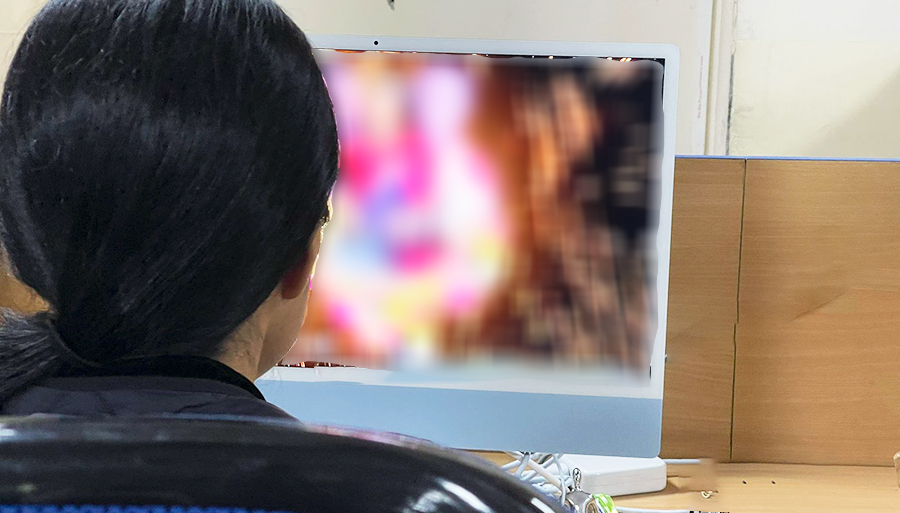
An increasing number of reality show organisers in the country started airing their shows on social media platforms after the Bhutan Broadcasting Service started limiting bulk voting to protect the contestants. However, according to some contestants, cash voting which happens in shows being aired on social media platforms is unfair and defeats the sole purpose of the competition. In cash voting, voters or participants are allowed to directly pay the show organisers any amount to ensure the contestant remains in the show.
Unhappy with cash voting practice, one of the contestants of a reality show currently airing on social media platforms decided to leave the show.
“From my perspective, I don’t think the voting system is fair because voting is done through mBoB. Moreover, in the show I was participating in, we have cash voting. I don’t think that is fair as the cash votes directly go to the organiser,” said Kabi Raj, a former reality show contestant.
According to sources, in cash voting, voters can choose to buy votes by directly paying the organiser without any limit on the amount.
Some contestants also say that cash voting practice defeats the whole purpose of the competition as the contestant paying the highest amount is already decided as the winner even as the show is ongoing.
In some instances, call it a result of cash voting or other malpractice, there were cases of participants dragging organisers to the court as well. So far, the High Court received two cases related to singing reality shows. One of the cases is related to recounting of votes and the other is concerning monetary issues.
Moreover, contestants and show judges BBS talked to say that fairness through votes is usually hard to determine.
“The shows usually begin as a fair competition. However, things change as the finale approaches. Sometimes, the talented ones win the competition but sometimes, rather than the deserving one, the one who receives many votes wins the competition. That’s why I do not think the shows are run fairly,” said Kinley Tshering, a reality show judge of the Druk Gi Kalapingka.
He added that the shows will be fair if more weightage is given to judges’ score.
Meanwhile, the organisers say the points garnered through voting and collected from the judges carry equal weightage. Moreover, organisers say they maintain transparency by revealing votes received by the contestants.
“Before, the voting was done only through SMS. Now, the banking app has made it very convenient. We made profit through SMS voting but the banking app has increased our profit. Afterwards, because it seemed like a gambling instead of competition, they imposed restrictions. Now, instead of profit, we are incurring loss,” said Kezang Phuntsho, a reality show organiser.
“Regarding our votes, we cannot design the vote system as we like. When we organise our show, the voting system recommended by the authorities make the competition fair. People think that we earn a lot of profit, but we have lots of fees and charges to pay in addition to the amounts we pay for the prizes and employees. Therefore, rules are important but they need to be implemented according to the situations,” said Tashi Dendup, another reality show organiser.
In an attempt to regulate the shows aired on social media, the Department of Law and Order has initiated two mechanisms. The organisers airing their shows on social media platforms are required to submit applications to the Bhutan InfoComm and Media Authority, BICMA, and limit voting to Nu 5,000. Over 15 singing shows have been organised on social media platforms so far.
In the last three months, BICMA has issued permits to 11 reality show organisers to be aired on social media platforms mostly on Facebook.
Show organisers are required to submit an application form along with a valid trade licence.
According to BICMA, the organisers must also sign an undertaking letter agreeing to comply with all relevant provisions of the Information, Communications, and Media Act of Bhutan 2018, and other pertinent laws of the country. The undertaking letter also mentions that show organisers cannot use their personal bank accounts for financial transactions related to the show.
According to the Department of Law and Order, the limitation on vote was set to ensure fairness of the competition.
According to BICMA’s regulation, voting for contestants in the shows is usually done through banking apps.
It costs a person Nu 10 to cast a vote for a contestant. The maximum quantity allowed is 500 votes. However, a person can buy 500 votes multiple times.
“We have put in place a mechanism to approve organising reality shows and we have not left it as open-ended so that we will be able to at least put in place a bare minimum standards in how we organise the reality show because since it is through our social media, it is accessible by many people, so we as a country, I think we should be mindful of how we present such programmes to the world,” said Karma Dorji, Officiating Director General of the Department of Law and Order.
With growing interest in organising reality shows, only time will tell if these regulations will ensure fairness of the shows or if more needs to be done to address the issue of cash voting.
Singye Dema
Edited by Phub Gyem









